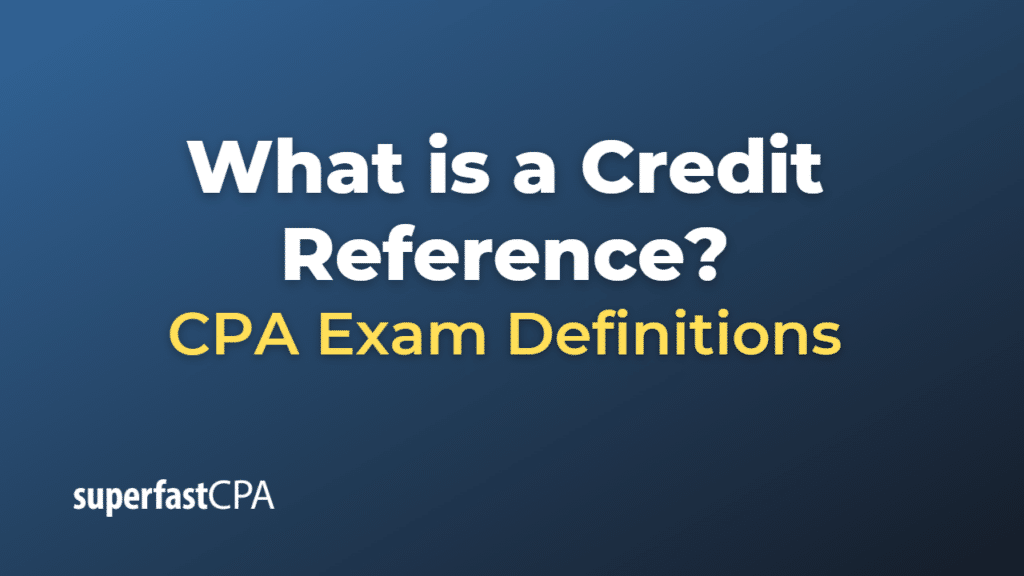Credit Reference
A credit reference, in the simplest terms, is a document that attests to the creditworthiness of a potential borrower. It’s used by lenders, landlords, and others to assess an individual’s or business’s financial reliability and the likelihood of them fulfilling their financial obligations.
A credit reference could be:
- For Individuals: Often a reference letter from a previous lender or a creditor, such as a credit card company, mortgage lender, or auto finance company. It may also include information from a credit bureau that details your credit history, including past loans, payment history, and any instances of bankruptcy or late payments.
- For Businesses: Typically a reference provided by a supplier or another business that extended credit to the company. It may also include a business credit report from a business credit reporting agency, such as Dun & Bradstreet. This report would include the company’s payment history with other businesses, its legal status, and other relevant financial information.
In both cases, the purpose of a credit reference is to help the requester (a potential lender or creditor) make a decision about whether to extend credit to the individual or business, and on what terms (e.g., interest rate, credit limit).
Example of a Credit Reference
An example for both an individual and a business.
Individual Credit Reference Example:
Imagine an individual, let’s say John, is applying for a mortgage. The bank or lender will request a credit reference to assess John’s creditworthiness. In this case, the credit reference is likely to be John’s credit report from one of the credit bureaus (Experian, Equifax, or TransUnion in the U.S.). This report will detail John’s past and current loans, his payment history, and his credit score. If John has been diligent about making his loan payments on time and has a good credit score, the bank may decide that he is a low-risk borrower and approve his mortgage application.
Business Credit Reference Example:
Now, imagine a business, let’s call it “RestaurantSupply Co.”, which supplies equipment to restaurants. RestaurantSupply Co. wants to buy equipment from a manufacturer on credit. The manufacturer requests a credit reference before agreeing to this arrangement. In response, RestaurantSupply Co. provides contact details for several of its suppliers with whom it has a good payment history.
The manufacturer contacts these suppliers and confirms that RestaurantSupply Co. has consistently paid its bills on time. Additionally, the manufacturer may also check RestaurantSupply Co.’s business credit report from a credit bureau like Dun & Bradstreet. After reviewing these credit references, the manufacturer decides that RestaurantSupply Co. is creditworthy and agrees to provide the equipment on credit.













